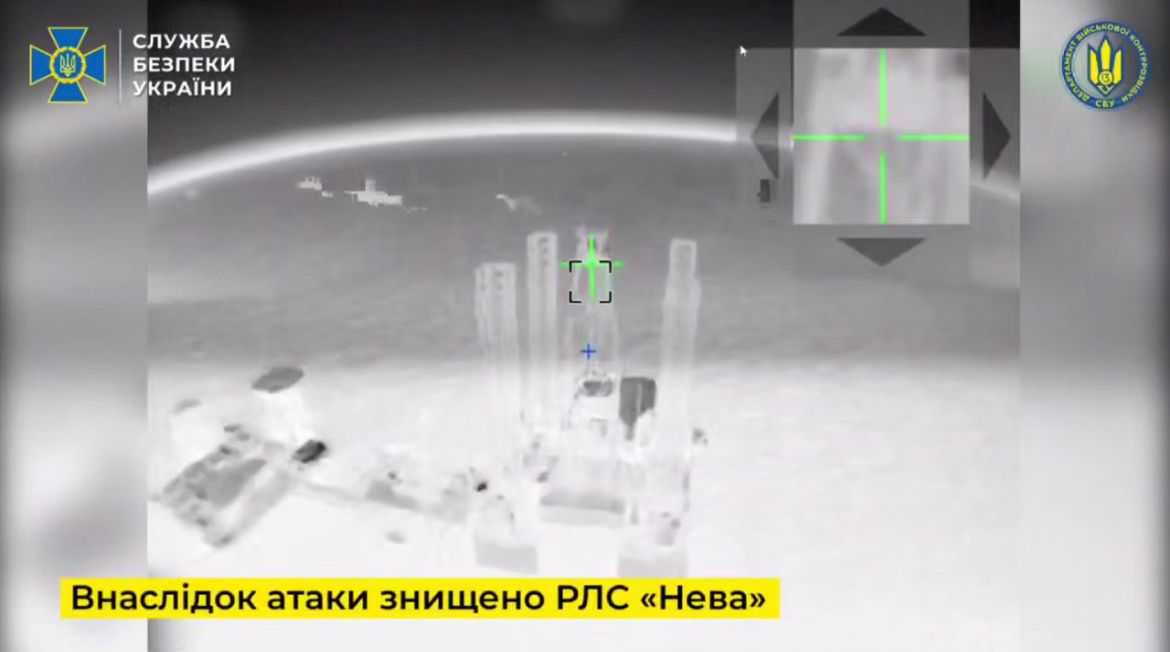Europe to Hold Talks With Iran on Friday

© Nicolas Tucat/Agence France-Presse — Getty Images


© Nicolas Tucat/Agence France-Presse — Getty Images
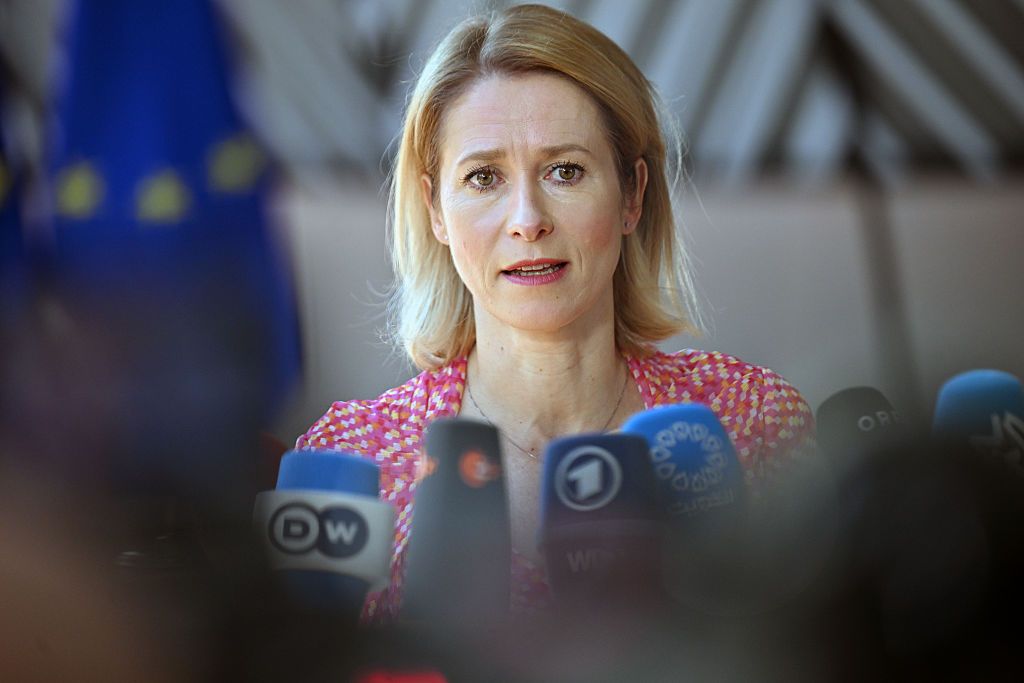

Failure to provide stronger military and financial support for Ukraine could leave Europe vulnerable to growing Russian influence, meaning Europeans might have to "start learning Russian," the EU's top diplomat, Kaja Kallas, said, the Guardian reported on June 17.
"We know that Russia responds to strength and nothing else," Kallas said. She called Ukraine "Europe's first line of defense" and emphasized the need for continued sanctions against Russia and more aid to Kyiv.
The comments come as Russian forces are intensifying their attacks on Ukrainian cities and the Kremlin continues to reject a push by Kyiv and its Western allies for an unconditional ceasefire.
"To quote my friend, NATO Secretary General Mark Rutte: if we don’t help Ukraine further, we should all start learning Russian," Kallas said.
Kallas cited a sharp increase in Russia's military spending, noting that Moscow is now allocating more money to defense than the EU combined, and more than its own health care, education, and social policies put together.
"This is a long-term plan for a long-term aggression," she said.
In light of this, Kallas urged governments to adopt NATO's new target of spending 5% of GDP on defense, warning of Russia's hybrid warfare tactics, including airspace violations, attacks on critical infrastructure, and covert sabotage operations within EU borders.
The 5% defense spending target is expected to be formally adopted during the upcoming NATO summit, which will take place on June 24 and 25 in The Hague. U.S. President Donald Trump has insisted that the European allies increase their defense budgets.
Earlier, Kallas said Russian President Vladimir Putin "cannot be trusted" to mediate peace while continuing to bomb Ukrainian cities and civilians, as Moscow suggested to mediate negotiations between Israel and Iran amid growing escalation.
"Clearly, President Putin is not somebody who can talk about peace while we see actions like this," she said during a June 17 briefing, after a massive Russian missile and drone strike on Kyiv killed at least 28 people and wounded over 130.
Kallas also reiterated her call for the EU to move forward with tightening the oil price cap on Russian exports, even without U.S. backing. She warned that the ongoing Israel-Iran crisis could cause oil prices to spike, boosting Russia's war revenues.
The EU is currently preparing its 18th sanctions package against Moscow, targeting energy, defense, and banking sectors. The 17th round of sanctions came into effect in May.
 The Kyiv IndependentOlena Goncharova
The Kyiv IndependentOlena Goncharova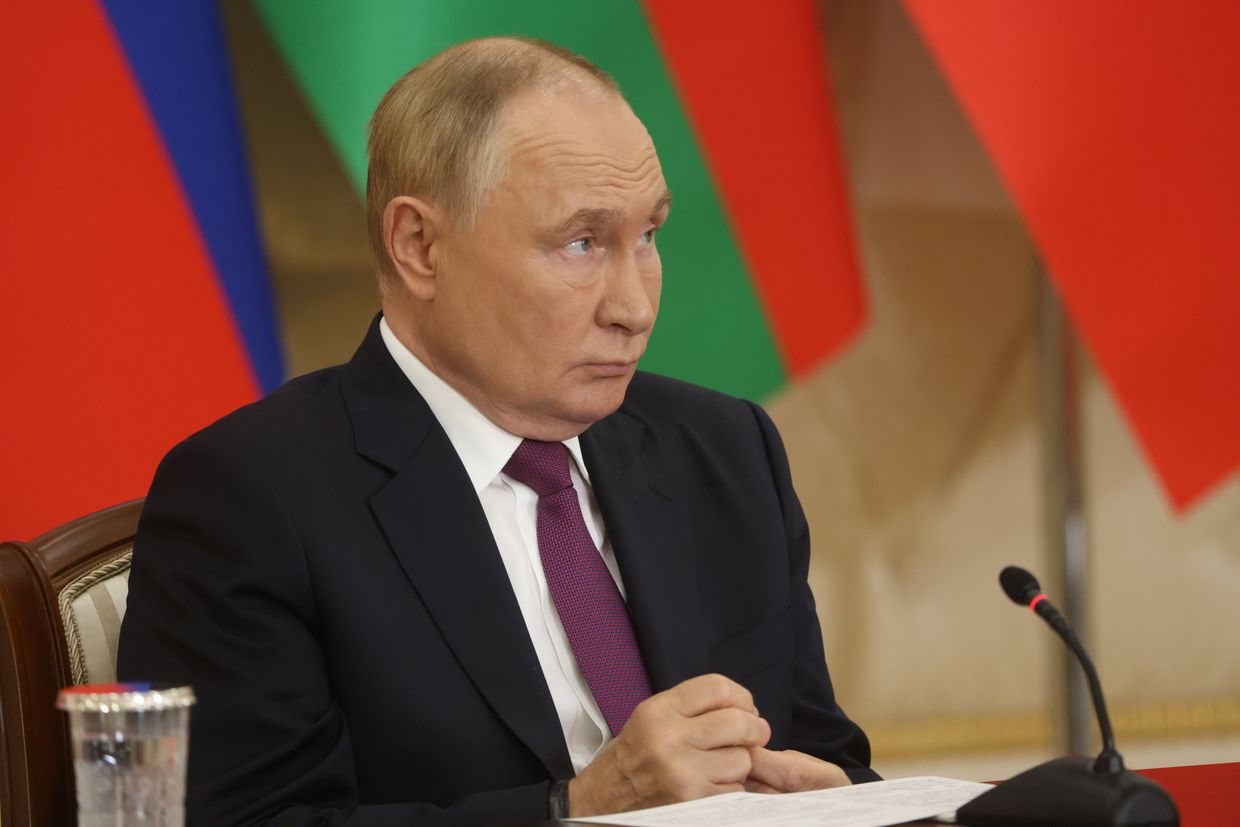
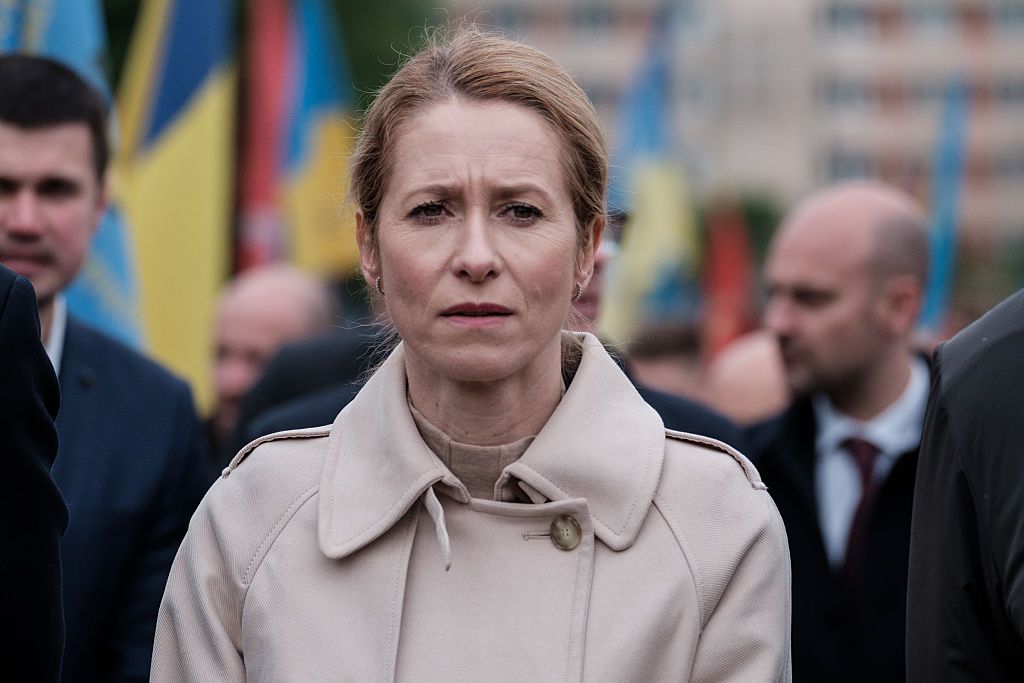

Russian President Vladimir Putin "cannot be trusted" to mediate peace in the Middle East while continuing to launch brutal attacks against civilians, EU High Representative Kaja Kallas said on June 17, following a mass Russian strike on Kyiv that killed at least 21 people and injured over 130.
"Clearly, President Putin is not somebody who can talk about peace while we see actions like this,” Kallas said during a briefing in Brussels. "He's not a mediator that can really be considered. Russia cannot be a mediator if they don't really believe in peace."
Russia has sought to position itself as a potential mediator in the escalating conflict between Israel and Iran. Kremlin spokesperson Dmitry Peskov said on June 17 that Israel appeared unwilling to accept Russia’s offer of mediation.
President Donald Trump said on June 15 that Putin had expressed willingness to help mediate between Tel Aviv and Tehran — an idea already dismissed by France. EU leaders have also questioned Moscow’s neutrality given its deep military ties with Iran, which has supplied Russia with drones and missiles used in attacks on Ukraine.
Kallas also pointed to Iran's role in enabling Russia's attacks. "Iran has helped Russia do these attacks… their cooperation is working in this regard," she said.
Kallas urged the European Union to press forward with lowering the oil price cap on Russian oil, even without U.S. support, warning that Middle East tensions could otherwise drive prices up and boost Russia's revenues.
"The whole idea of the oil price cap is to lower the prices," Kallas said. "We shouldn't end up in a situation where the crisis in the Middle East increases oil prices and makes Russia earn more… that would mean they can fund their war machine on a bigger scale."
Her warning comes after global oil prices soared on June 13, following an Israeli strike on Iran that raised fears of a broader regional conflict. Brent and Nymex crude prices surged more than 10% before stabilizing around 7.5% higher, with Brent at $74.50 a barrel and Nymex at $73.20, the BBC reported.
The spike threatens to undermine Western efforts to restrict Russia’s wartime revenues, which heavily depend on oil exports.
Earlier, Kallas said the EU can act independently to lower the oil price ceiling, noting that most Russian crude flows through European-controlled waters.
"Even if the Americans are not on board, we can still do it and have an impact," she said.
Her remarks come as the EU works on its 18th sanctions package targeting Russia's energy, banking, and defense sectors. The 17th package entered into force on May 20. European Commission President Ursula von der Leyen has said new measures will further target Russia's war-sustaining supply chains.
Kallas spoke hours after one of Russia's deadliest attacks on Kyiv since the start of its full-scale invasion. The nearly nine-hour assault saw Moscow fire 472 aerial weapons, including over 280 Shahed drones and multiple cruise and ballistic missiles.
Ukraine's Air Force reported intercepting 428 targets, but several missiles hit residential buildings, including a nine-story apartment block in Solomianskyi district, where 16 people were killed.
President Volodymyr Zelensky called the assault "one of the most horrifying attacks on Kyiv" and again called on Western leaders to act decisively.
 The Kyiv IndependentAlex Cadier
The Kyiv IndependentAlex Cadier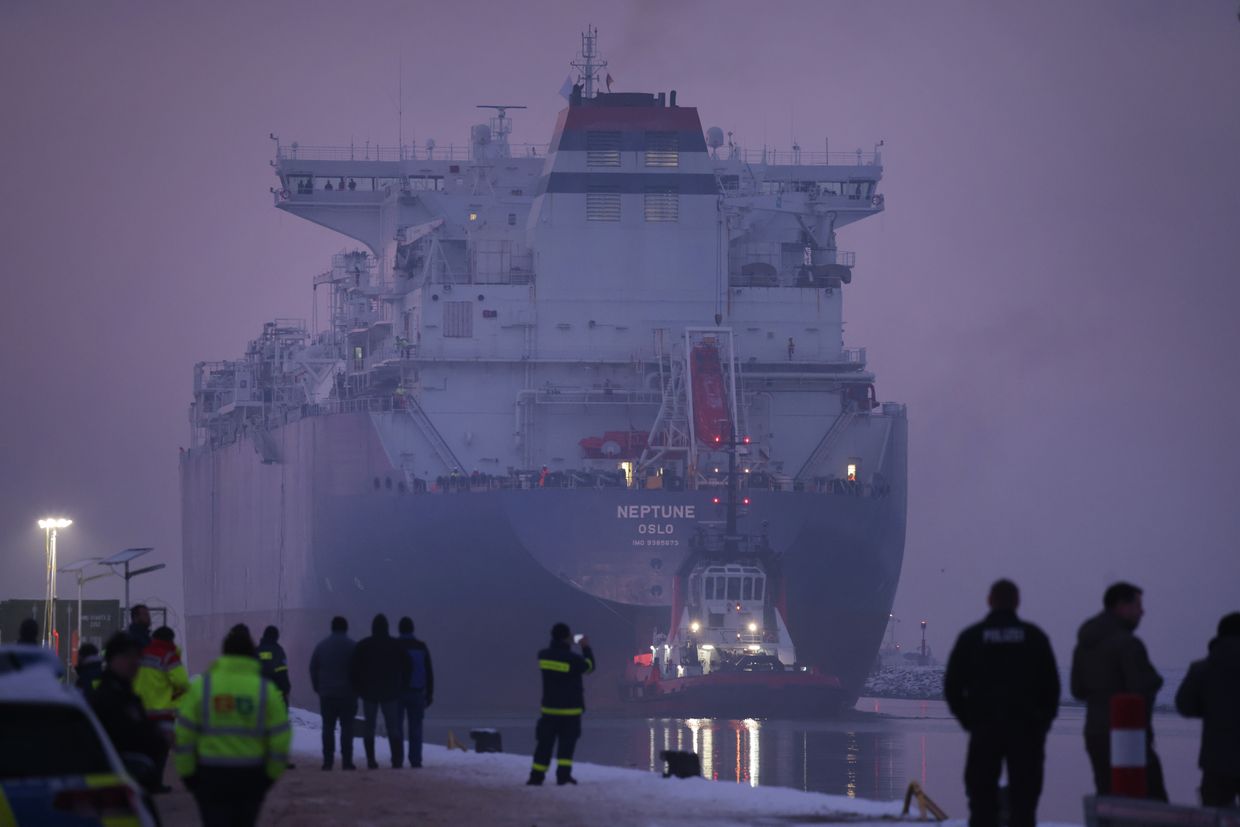
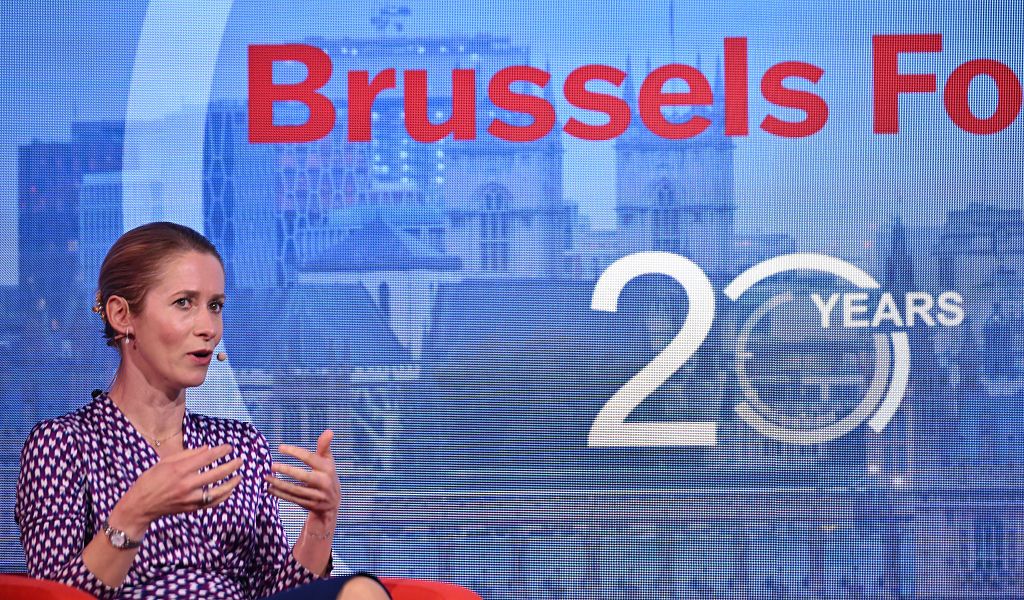

The European Union can impose an additional price cap on Russian oil without U.S. support, EU High Representative Kaja Kallas said at the Brussels Forum on June 11.
"If you think about the oil going through the channels, it's mostly Europe, it's via the Baltic Sea, it's via the Black Sea. So even if the Americans are not on board, we can still do it and have an impact," Kallas said.
The EU's 17th package of sanctions against Russia came into effect on May 20. The bloc is already working on its next wave of sanctions.
The 18th EU sanctions package will include additional restrictions on energy, banking, oil, and other areas, European Commission President Ursula von der Leyen announced on June 10.
"What the intelligence tells is that, now the sanctions will (harder hit) the supply chains of Russia needed to really fund this war," Kallas said.
"Of course, it is important the United States... is together with us, and we have been operating together for quite some time," she said.
Kallas noted the Group of Seven (G7) oil price cap was previously agreed upon to be 5% below the market price.
"It is important, of course, what we do together, but it is also equally important for us what we do alone, because we alone are also a player," Kallas said.
Kallas noted the EU is still an ally to the U.S., but recognized the dynamic between the two powers is changing.
"We still value the relationship... I think with the Americans we are not growing apart, but growing up in our relationships," Kallas said.
The upcoming G7 summit will take place in Alberta, Canada. A wide range of topics, including Russia's war against Ukraine, are expected to be discussed at the annual event.
President Volodymyr Zelensky previously confirmed he would be attending the G7 summit after receiving an invitation from Canadian Prime Minister Mark Carney.
 The Kyiv IndependentKateryna Denisova
The Kyiv IndependentKateryna Denisova
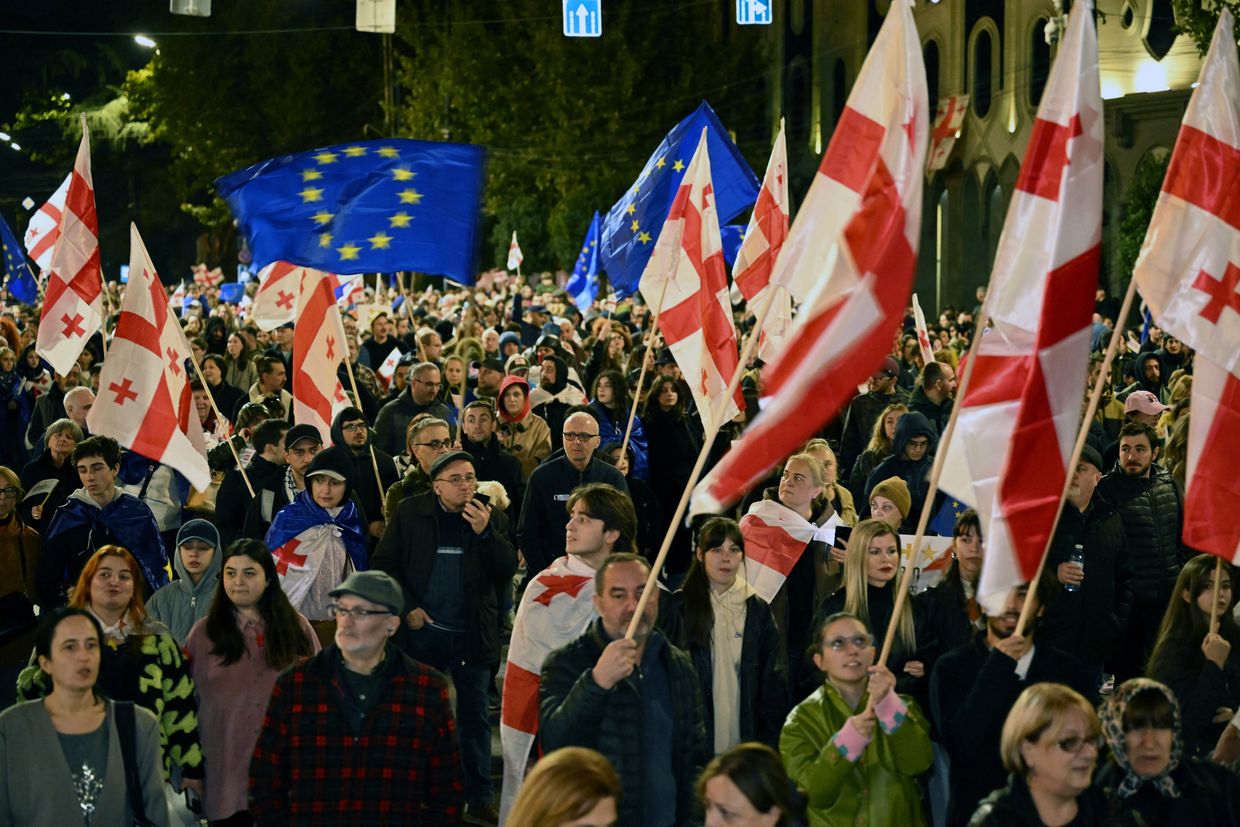

The European Union has condemned Georgia’s Foreign Agents Registration Act, characterizing it as a setback for the country's democratic development and calling on Georgian authorities to reverse democratic backsliding.
In a joint statement published on May 31, top EU officials Kaja Kallas and Marta Kos criticized the Georgian foreign agents law, which requires civil society organizations that receive international funding to register as "foreign agents." The law officially came into effect on May 31.
The EU called the law a "serious setback for the country's democracy" that "represents another aggressive action by the Georgian authorities to suppress dissent, restrict freedoms, and further shrink the space for activists, civil society, and independent media."
The ruling Georgian Dream party, which currently holds a parliamentary majority, passed the contentious law earlier in April 2025, alongside other "repressive measures [that] threaten the very survival of Georgia’s democratic foundations and the future of its citizens in a free and open society."
The statement also noted that Georgia's "accession process has been de facto halted." Georgia first received EU candidate status in December 2023, but its accession process has been hampered by growing authoritarianism in the country.
The EU reiterated its call for Georgian authorities to heeds their citizens' demands for democracy and a European future and urged the "release all unjustly detained journalists, activists, protesters, and political leaders."
"The EU is ready to consider the return of Georgia to the EU accession path if the authorities take credible steps to reverse democratic backsliding," the statement emphasized. "The responsibility lies solely with the Georgian authorities."
Mass protests erupted in Georgia following the contentious parliamentary elections in October 2024, in which Georgian Dream maintained its majority amidst reports of ballot stuffing, intimidation, and other electoral irregularities. Protestors have also cited the foreign agents law as a source of discontent.
Georgia's foreign agents law closely mirrors a similar law that was passed in Russia and weaponized by the Kremlin to clamp down on civil society. First introduced in 2012 and significantly expanded in 2022, Russia's foreign agents law is yet another one of Moscow's primary tools for suppressing criticism.
 The Kyiv IndependentAnna Fratsyvir
The Kyiv IndependentAnna Fratsyvir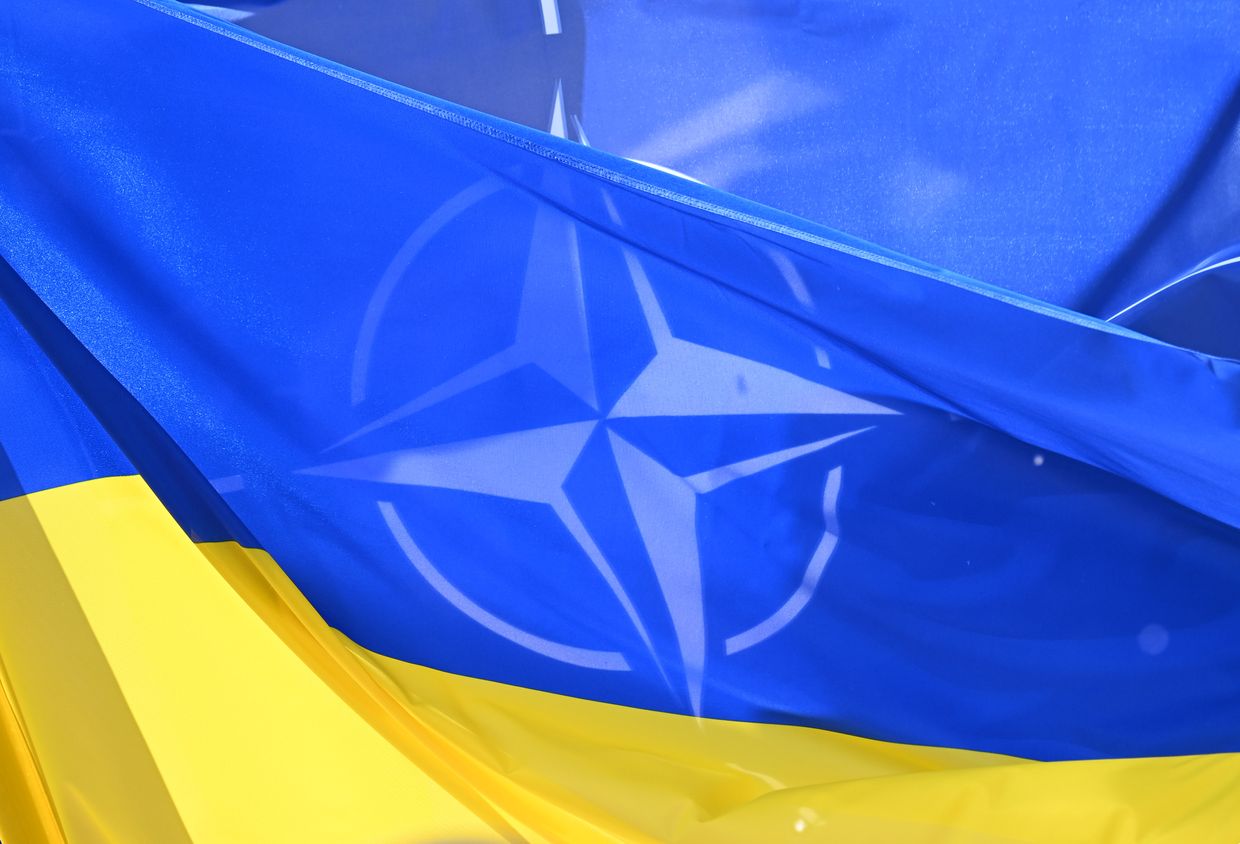
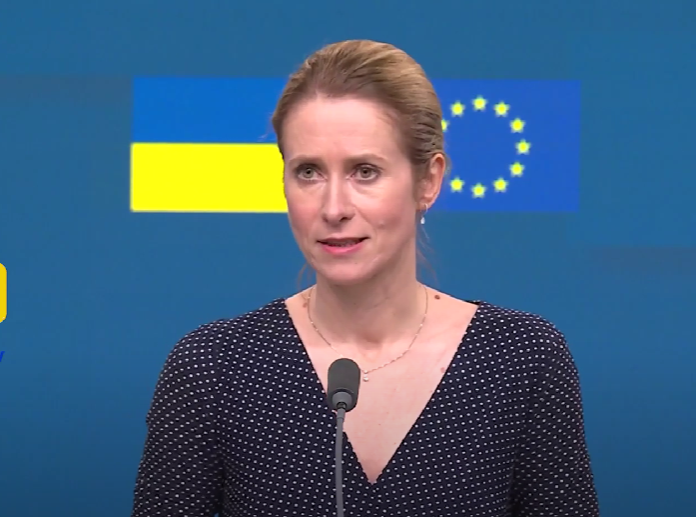

EU foreign policy chief Kaja Kallas responded to US Defense Secretary Pete Hegseth’s comments on European military spending at a Singapore defense forum Saturday, Politico reported on 31 May.
At the Singapore defense forum, Pete Hegseth pointed to Europe’s recent increases in military spending as a benchmark, urging Asian allies to match or exceed these efforts in light of the escalating threat from China. He reportedly argued that it is inconsistent for European nations to invest so heavily in defense while Asian allies, facing a more immediate threat, lag behind in their own military expenditures
“It’s love nonetheless, so it’s better than no love,” Kallas told reporters when asked about Hegseth’s criticism of Europe’s defense investments.
Kallas described Hegseth’s remarks as positive despite their critical tone. “You heard his speech. He was actually quite positive about Europe, so there’s definitely some love there,” she said.
Hegseth had told conference delegates that the US was “pushing our allies in Europe to own more of their own security — to invest in their defense.” The defense secretary credited President Trump for European military improvements. “Thanks to President Trump, they are stepping up,” Hegseth said. He praised Poland and the Baltic States as “model allies.”
Kallas acknowledged divisions within Europe over military spending levels. “Some of us have realized a long time ago that we need to invest in defense,” she said. The EU foreign policy chief described a shift in European thinking.
“The European Union has shifted gear and reimagined our own paradigm as a peace project backed up with hard defense,” she said.
European countries formally adopted a €150 billion ($170 bn) military spending package earlier this week.
EU Defense Commissioner Andrius Kubilius warned earlier this week that Europe must avoid an “angry divorce” with the US. He said it was “almost unavoidable that we shall need to stand on our own two feet in defense matters in Europe, because Americans will more and more withdraw.”
Kallas emphasized connections between European and Pacific security during her Singapore remarks.
“It is a good thing we are doing more, but what I want to stress is that the security of Europe and the security of the Pacific is very much interlinked,” she said.
She also cited Chinese supplies to Russia and North Korean soldiers fighting alongside Russian forces in Ukraine as examples of this interconnection.
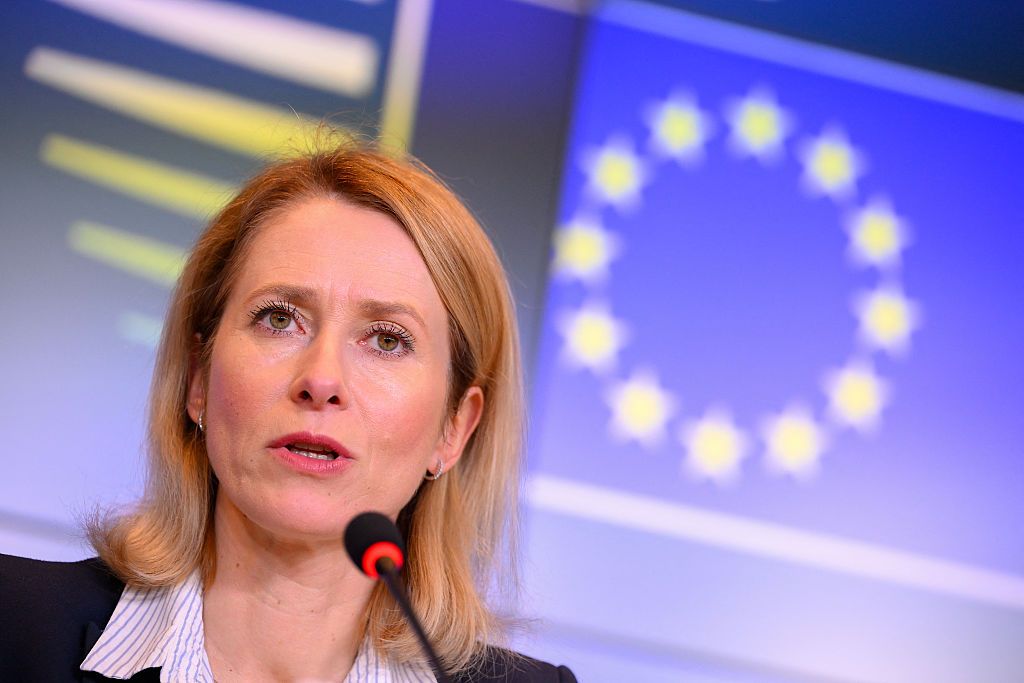

The European Union unveiled a new security strategy for the Black Sea region on May 28, aiming to counter growing Russian threats, improve regional defense infrastructure, and deepen cooperation with key partners from Ukraine to Turkey, EU High Representative Kaja Kallas said.
Speaking at a press briefing in Brussels, Kallas outlined the bloc's "Strategic Approach to the Black Sea Region," calling it essential for European security, trade, and energy resilience.
"The Black Sea region is of great strategic importance to the European Union," Kallas said. "But the region's potential is marred by Russia's war. Reoccurring airspace violations, and attacks on ports and shipping lanes highlight this reality."
Kallas proposed creating a Black Sea Maritime Security Hub, envisioned as an early warning and monitoring system that would enhance situational awareness and protect key infrastructure such as offshore energy platforms and subsea cables.
Kallas said the hub could also support future peace monitoring efforts in the event of a ceasefire between Russia and Ukraine. While the EU has not disclosed where the hub would be located or which countries would take part, a document seen by Radio Free Europe/Radio Liberty describes its focus on real-time monitoring from space to seabed, mine clearance, and the protection of commercial sea routes.
The strategy also calls for major upgrades to regional transport networks, including ports, roads, railways, and airports, to allow faster movement of heavy military equipment.
"These updates will help to ensure troops can be where they are needed, when they are needed," Kallas said, adding that the changes will also reinforce NATO deterrence. The EU plans to tighten screening of foreign ownership in strategic facilities, particularly in the region's ports.
The third major priority of the plan targets hybrid threats, including cyberattacks and disinformation. "The Black Sea region is a prime target for hybrid actions," Kallas said. She announced that the EU would invest in artificial intelligence to counter disinformation, promote media literacy, and support fact-checking networks.
The strategy was presented amid growing concern over Russia's destabilizing activities in the Black Sea and a broader effort to strengthen EU partnerships with Armenia, Azerbaijan, Georgia, Moldova, Turkey, and Ukraine.
The plan notes that Turkey is a "vital partner and candidate country" and highlights its potential role in countering Russia's shadow fleet and ensuring maritime security.
According to RFE/RL sources, Turkey suggested it would assure safe passage in the Black Sea and potentially clear up mines in case of a ceasefire between Ukraine and Russia.
Turkey has emerged as a potential mediator in Russia's full-scale invasion of Ukraine, balancing relations with both sides through ongoing diplomatic and economic engagement. So far, Ankara has supported peace talks, helped enable grain shipments, and signaled readiness to assist in monitoring any future ceasefire.
The EU will reportedly convene a ministerial meeting with Black Sea partner countries to coordinate the next steps. The strategy does not include new funding commitments or legislative proposals.
 The Kyiv IndependentAnna Fratsyvir
The Kyiv IndependentAnna Fratsyvir